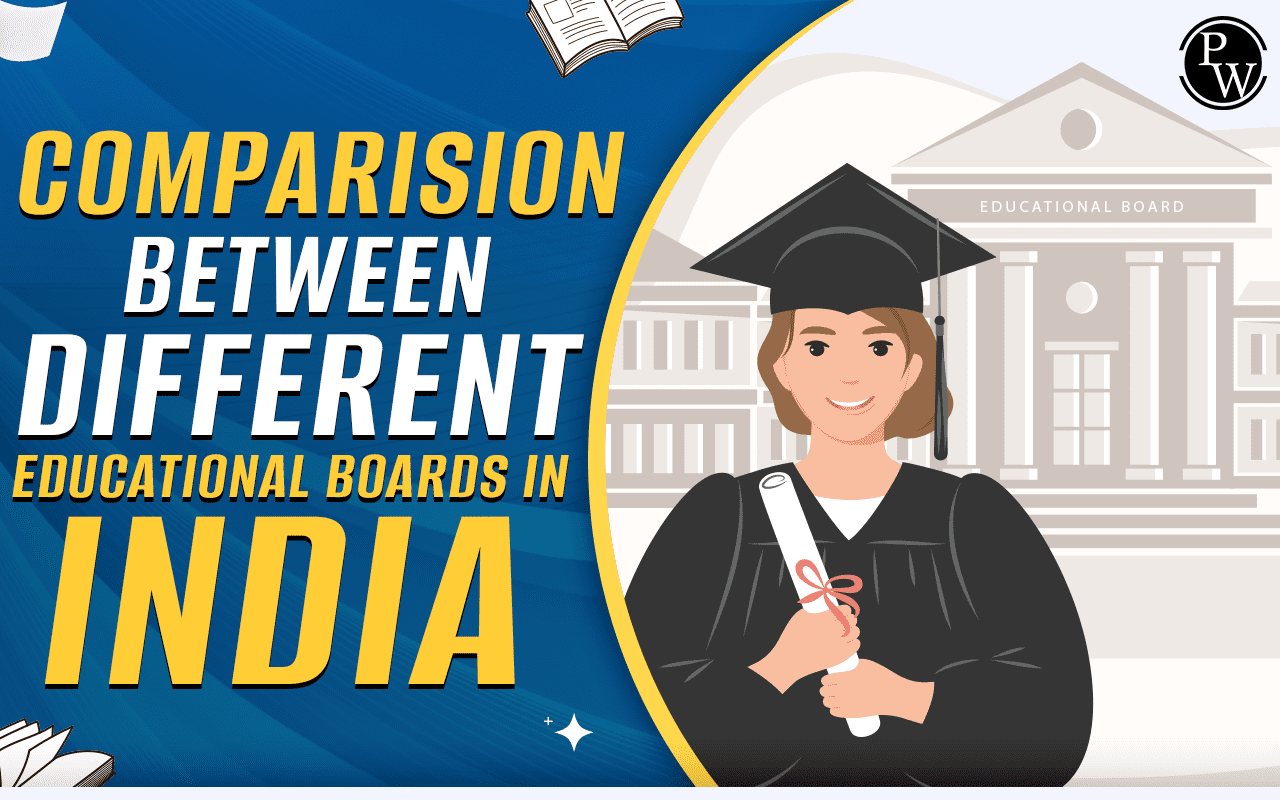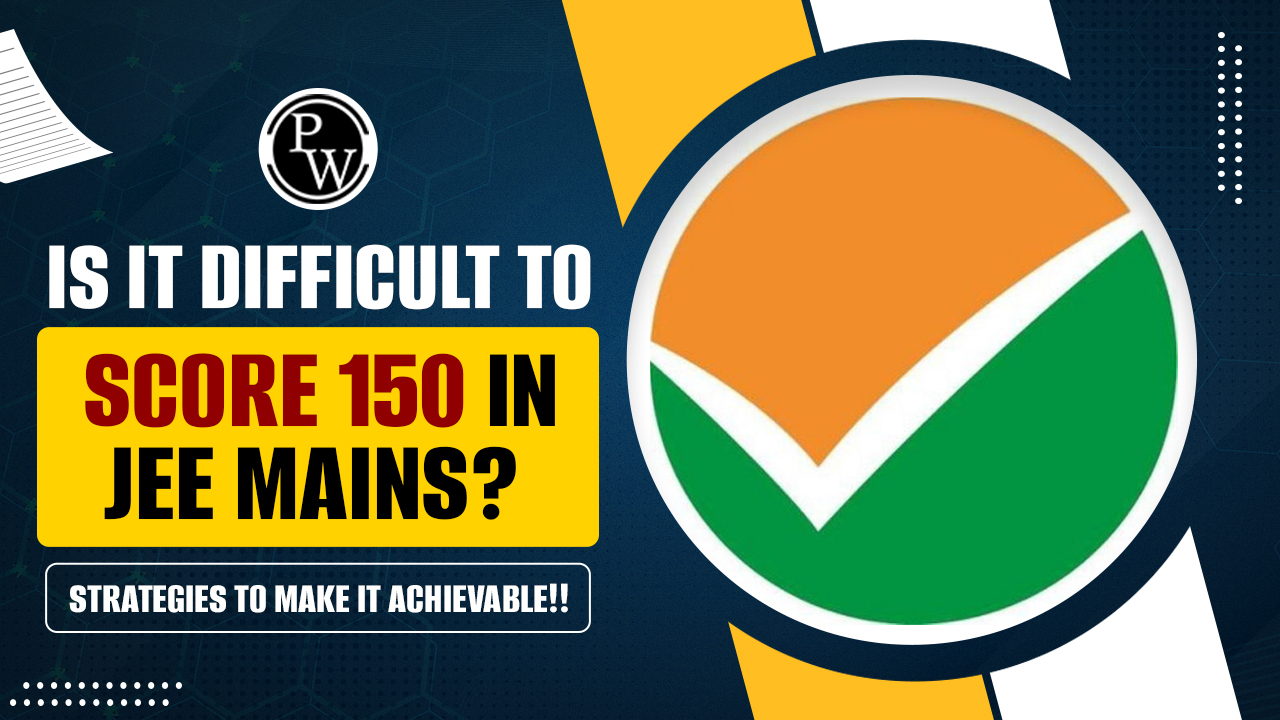Comparison Between Different Educational Boards in India

Education boards in India shape a student’s entire academic journey. The selection of a suitable education board is a profound dilemma for parents. Weighing pros and cons is one of the solutions that has been practical so far. Different assessment methods and curriculum offer different pros and cons to the students. A child’s learning and academic experience along with future opportunities is influenced majorly by the selection of the school board. The following comparison between different exam boards in India gives you clarity on which one to select for your child.
Different Education Boards in India: Overview
India holds a treasure in a wide range of educational boards, each of which has its own unique characteristics and facilities. Central Board of Secondary Education, International Baccalaureate, Cambridge International Examinations, and more are some of the major and most common boards of education in India. The dynamic nature of these boards which constantly changes and evolves cater to the needs of several students per year. Understanding the fine features of each board is important for the parents to make proper decisions for their kids to gain maximum benefits in the future. The following is a list of educational boards in India out of which most of the selection is done every year.
List of Education Boards in India
- Central Board of Secondary Education: CBSE is one of the most prominent and reputed boards in the entire nation. It holds the All India Senior School Certificate Examination (AISSCE) for both Class 10 and 12.
- Indian Certificate of Secondary Education: ICSE is very well known for its distinctive curriculum and conducts the Indian Certificate of Secondary Education Examination for Class 10.
- State boards: Every state in India has its regional board to conduct exams, especially for Class 10 and 12. For instance, Maharashtra has the Maharashtra State Board of Secondary and Higher Secondary Education (MSBSHSE) and the Tamil Nadu State Board of Secondary Education.
- National Institute of Open Schooling: NIOS offers flexible and adaptive learning categories along with examinations for students to learn various things throughout the year effectively.
- Council for the Indian School Certificate Examinations (CISCE): Apart from ICSE, CISCE also conducts the Indian School Certificate (ISC) examination for Class 12.
- International Baccalaureate (IB): IB provides international education programs and is identified by some schools in India.
- Cambridge Assessment International Education (Cambridge International): Cambridge International provides Cambridge IGCSE and A-level programs and is adopted by some schools in India.
- National Board of Examinations (NBE): NBE conducts postgraduate medical and dental examinations, including the National Eligibility cum Entrance Test for Postgraduate (NEET PG).
- National Council of Educational Research and Training (NCERT): NCERT creates and publishes textbooks and educational materials that are commonly used across various boards.
- International General Certificate of Secondary Education (IGCSE): IGCSE, affiliated with the University of Cambridge, is offered by some international schools in India.
Recommended Books for CBSE:
- CBSE Class 10th - Past 10 Years' Solved Papers
- CBSE Class 10th Science + Math + English + Social Science and Hindi Combo Set of 5 Books Question & Concept Bank Chapterwise & Topicwise Exam 2023-2024
- CBSE Class 10th English + Mathematics + Science and Social Science Combo Set of 4 Books
- CBSE Class 10th Question Banks
- CBSE Class 10th Sample Papers
State Boards
State boards of education in India play an important role in shaping the academic scenario. Every Indian state typically has its educational board responsible for governing school-level education within its jurisdiction. These state boards forge curricula, conduct examinations, and even overseas educational policies made to meet the specific needs and cultural nuances of their respective areas. State board examinations like the Maharashtra State Board and Tamil Nadu State Board, are significant milestones for students and serve as qualifiers for higher education. State boards contribute to the diverse educational fabric of India, ensuring that education is accessible, relevant, and contextualized to the unique demands of each state's student population.
Some of the pros of the state boards include:
- Localised academics
- Emphasis on the regional language
- Affordability
Some of the cons of the state boards include:
- Different standards than the CBSE boards
- These boards are lesser recognized comparatively
- These boards offer limited exposure
Central Board of Secondary Education (CBSE)
The Central Board of Secondary Education (CBSE) is a pivotal educational body in India, renowned for its nationwide presence and standardization of school education. Established by the Government of India, CBSE administers a uniform curriculum for students across the country, ensuring consistency and quality in learning. It conducts various examinations, including the Class 10 and 12 board exams, which serve as essential milestones for students. CBSE's holistic approach encompasses innovative teaching methodologies, modern syllabi, and a focus on holistic development. With a commitment to educational excellence, CBSE plays a significant role in shaping the academic future of millions of students, preparing them for higher education and beyond.
Some of the pros of CBSE include:
- There is a uniform curriculum at CBSE
- CBSE is nationally recognized
- The emphasis in CBSE boards is more on competitive exams
Some of the cons of CBSE include:
- There is extreme rigidity in CBSE regarding being particular about subjects and syllabus
- The syllabus is extremely heavy to deal with
- CBSE focuses less on regional languages
Council for the Indian School Certificate Examinations (CISCE)
CISCE is a prominent educational board in India, known for conducting the Indian Certificate of Secondary Education (ICSE) and Indian School Certificate (ISC) examinations. These examinations are recognized for their comprehensive curriculum and rigorous evaluation. CISCE emphasizes a holistic education approach, nurturing students' critical thinking, creativity, and analytical skills. Its commitment to academic excellence has made it a preferred choice for many schools, providing students with a well-rounded education that prepares them for a wide range of future opportunities.
National Institute of Open Schooling (NIOS)
NIOS is a pioneer in open and distance learning in India. It offers flexible educational options to students who may not be able to attend traditional schools. NIOS conducts examinations for secondary and senior secondary levels, providing opportunities for continued education and skill development. NIOS's inclusive approach ensures that education is accessible to all, including adult learners and those with special needs. Its programs empower individuals to pursue education at their own pace, making it a valuable alternative to regular schooling.
International Baccalaureate (IB)
The International Baccalaureate (IB) program is a globally recognized curriculum that emphasizes international-mindedness and academic rigor. It offers a range of programs, including the Primary Years Programme (PYP), Middle Years Programme (MYP), and Diploma Programme (DP). IB fosters a holistic education that encourages critical thinking, creativity, and intercultural understanding. Its emphasis on inquiry-based learning and community engagement prepares students for success in a rapidly changing world. IB programs are widely respected and sought after by students and parents seeking a global perspective on education.
Cambridge International Examinations (CIE)
Cambridge International Examinations (CIE) is a division of the University of Cambridge that offers international education programs. It includes the Cambridge IGCSE and A-levels, which are recognized worldwide. CIE's curriculum is known for its academic rigor and emphasis on critical thinking and independent learning. It provides a global platform for students to pursue their education and offers a wide range of subject choices. Schools that offer CIE programs aim to provide students with a well-rounded education that prepares them for higher education and careers on a global scale.
To sum up everything, the Indian education landscape is rich and diverse, offering a multitude of educational boards, each with its unique characteristics and approaches. From the CBSE's standardized curriculum to the ICSE's comprehensive syllabus, from state boards catering to local needs to international boards like IB and Cambridge providing a global perspective, Indian students and parents have a plethora of choices. The key lies in understanding the strengths and weaknesses of each board, aligning them with individual aspirations, and choosing the one that right fits a student's learning style and future goals. Ultimately, it's not just about the board but also about the quality of education, commitment to holistic development, and the pursuit of excellence that truly matters in a student's educational journey.
Recommended Books for CBSE:
CBSE Class 10th - Past 10 Years' Solved Papers
CBSE Class 10th Science + Math + English + Social Science and Hindi Combo Set of 5 Books Question & Concept Bank Chapterwise & Topicwise Exam 2023-2024
CBSE Class 10th English + Mathematics + Science and Social Science Combo Set of 4 Books
Education Boards in India FAQs
- Which are the most significant education boards in India?
The most significant education boards in India include CBSE, CISCE, State Boards, NIOS, IB and CIE.
- What are the benefits of selecting State Boards for education?
State Boards offer a regional curriculum that makes them ideal for students living in a specific state.
- Why does CBSE education matter comparatively more?
CBSE is recognized nationwide and gives exposure to various subjects.
- What makes CISCE stand out from other educational boards?
CISCE focuses on prominent learning while offering a wide range of subjects like science, arts, languages, etc.
5. How does NIOS stand out from other educational boards?
- NIOS is known for its adaptability, allowing students to learn at their own speed. This makes it an excellent choice for distance education.






